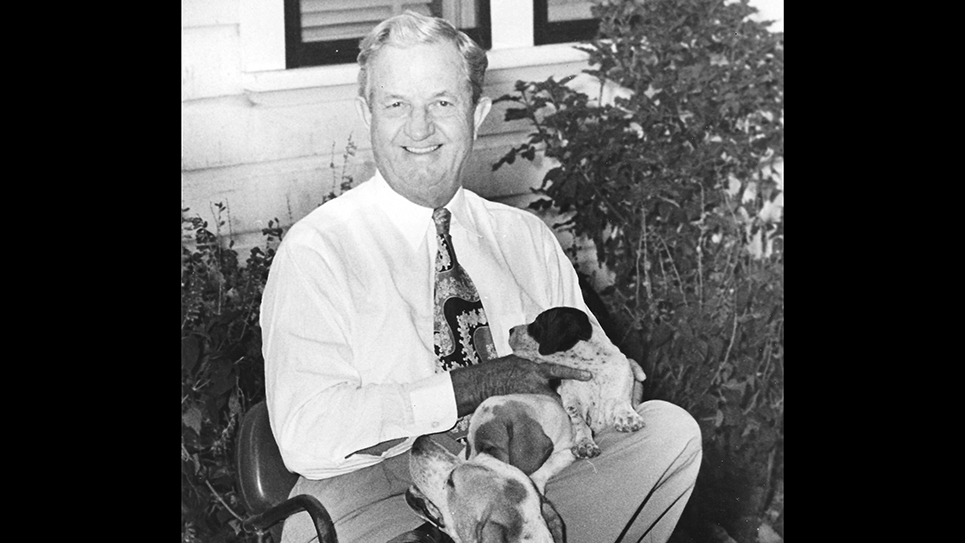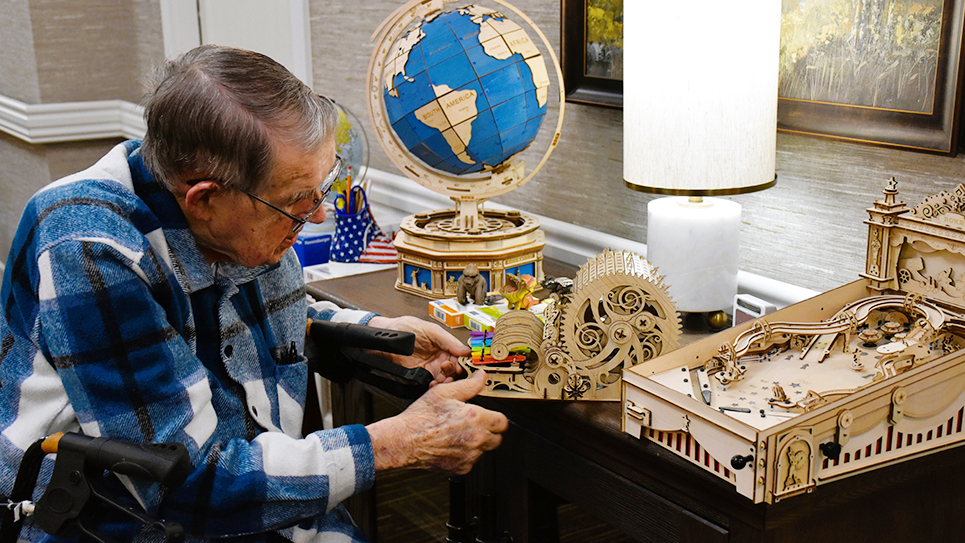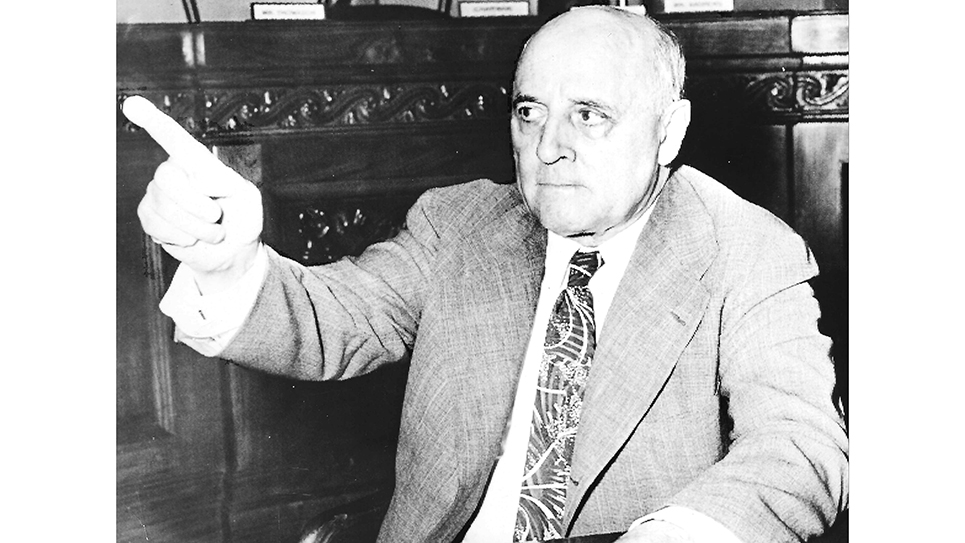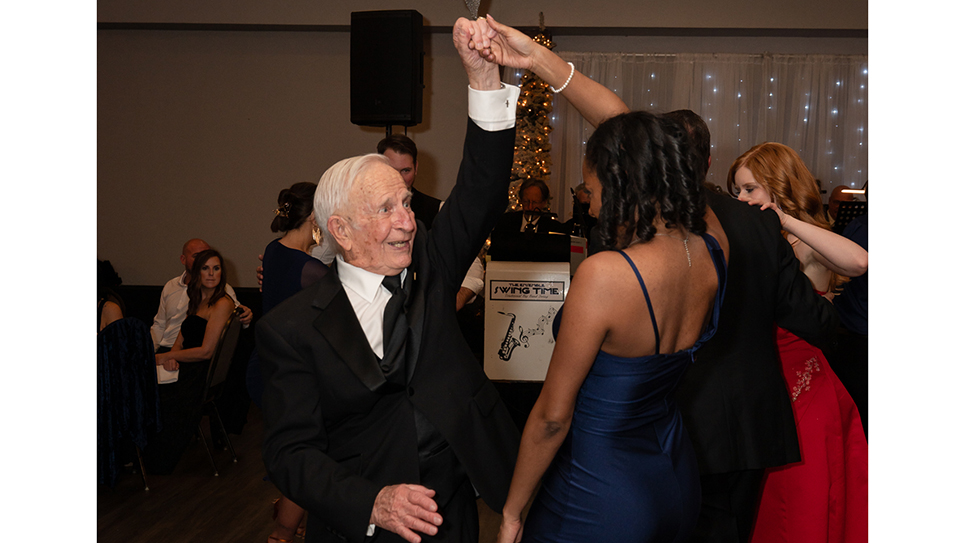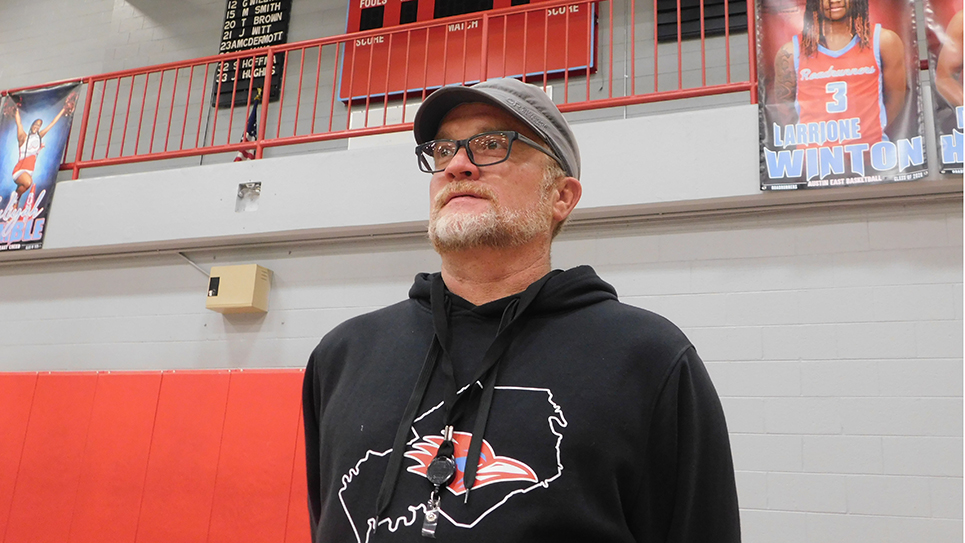The Unknown Long
George S. Long of Louisiana
One of the most enduring of all political dynasties is that founded by Huey Pierce Long, Louisiana’s “Kingfish.” Even those who barely know anything about politics and history are oftentimes familiar with the flamboyant Huey Long, who was assassinated in 1935. Huey P. Long was governor of Louisiana and represented the Pelican State in the United States Senate until his death. Long’s widow, Rose, was briefly a member of the United States Senate by virtue of an appointment by Governor O. K. Allen. Their son, Russell, was elected to the U.S. Senate in 1948 at age thirty and remained in office until his retirement in 1987. Various Long relatives and cousins served in a number of offices. The most famous of Huey’s brothers was Earl K. Long, who became governor when Richard Leche abruptly resigned from office. Even more flamboyant than Huey, “Uncle Earl” won two four-year terms in his own right as Louisiana’s chief executive. Uncle Earl’s wife, Blanche, was Louisiana’s Democratic National Committeewoman from 1956-1963. Huey and Earl’s older brother, George Shannon Long, was a member of the Oklahoma State House of Representatives and was elected to Congress from Louisiana in 1952.
While much more understated than either Huey or Earl, George Long was quite a character in his own right. A dentist and an attorney, George S. Long had moved to the Sooner State after graduating from dental school. Like his two younger brothers, George was bitten by the political bug and ran for public office in both his adopted state of Oklahoma and his native state of Louisiana. A family of political brawlers, the Longs fought as often with each other as anyone else. As the Shreveport Times once noted, “Sometimes it is a little difficult to keep straight just where the Longs stand with each other, politically.” When Dr. Long, as George liked to be called, had run for the U.S. House of Representatives twice before, brother Earl had campaigned for his opponent. Indeed, the Times thought Earl Long had campaigned against his older brother “vigorously and perhaps even viciously.” One editorial in the Times stated, “Some of the descriptions of George by Earl on those occasions were hardly printable.” Like any good member of the Long family, George was capable of dishing it out as well as taking it, as the newspaper readily acknowledged that those things Dr. Long said about his younger brother were equally unprintable.
The two made up, and Earl, when restored to the governorship, appointed his older brother to a state job at the Pineville Hospital. Dr. Long attracted some mighty unwelcome publicity from Louisiana newspapers over expenditures he insisted were legitimately the state’s, while some suspected they were more personal in nature. Eventually, Dr. Long resigned his post, although the Shreveport Times noted, George didn’t know he had resigned his state job until Earl “told him about it.” When Dr. Long sought election yet again to Congress in the 1952 election, Earl Long campaigned hard for his sibling.
Never against nepotism, while campaigning for the House in 1952, Dr. Long crowed it would be good for him to be in Washington, D.C., because, “I can give Russell a lot of good advice.” Doubtless, whether Senator Long wanted it or not.
There were Longs holding three of the highest offices within the gift of the people of Louisiana: Russell in the U.S. Senate, Earl in the governor’s office, and George in the U.S. House of Representatives. And all of them had been elected by the people. Like any good family member, Dr. George S. Long had used defeat “simply as a springboard for a new attempt at victory.”
While living in Tulsa, Oklahoma, George S. Long became something of a perennial candidate for public office. Aside from winning a seat in the state House of Representatives, Long’s efforts to be elected to the U.S. Senate and the Oklahoma State Corporation Commission were failures. It was not for lack of trying; Dr. Long ran for corporation commissioner in the elections of 1924, 1926, 1928, 1932 and 1934. Only once did his candidacy rise to double digits in terms of support.
By 1940, Dr. Long had moved back to Louisiana, and that same year, he ran for Congress from the Eighth District and polled only 10% of the ballots cast in the Democratic primary. Not at all discouraged, Dr. Long ran again in 1946 against incumbent Congressman Asa Leonard Allen. A. Leonard Allen had his own political pedigree, being the younger brother of Governor Oscar K. Allen and was a member of the Long political organization, which is why Earl refused to supplant Allen with his older brother. George Long carried his home county and then only by a plurality; Congressman Allen carried everything else. Dr. Long once again challenged Congressman Allen in the 1950 Democratic primary and won only slightly more than 30% of the ballots cast.
Congressman A. Leonard Allen announced in July 1951 that he would not be a candidate for reelection to a ninth term. Allen said he was giving prospective candidates plenty of time to offer themselves to the voters. No fewer than seven contenders entered the Democratic primary to succeed Congressman Allen. Sixty-eight-year-old Dr. George S. Long ran first with just over 27% of the vote, followed by Carl Close, mayor of Alexandria, with 22%. As no candidate won a majority of the ballots cast, Louisiana law required a second primary between the two top vote-getters. George Long won that contest rather easily, polling roughly 63% of the vote and carrying every parish (county) in Louisiana’s Eighth Congressional District.
George’s 1952 victory was seen as a political comeback of sorts for the Long family, or at the very least for brother Earl, who was planning another gubernatorial bid in 1956. The Longs, Earl and Russell in particular, fought hard to keep Louisiana in the Democratic column during the 1952 general election. One of the most Democratic states in the nation at the time, Governor Robert Kennon, a Democrat who had quite nearly beaten Russell Long for the U.S. Senate in 1948, and defeated Earl‘s handpicked candidate in the 1952 gubernatorial election, bolted and backed Dwight D. Eisenhower, the Republican presidential nominee. Eisenhower polled the largest vote given any GOP presidential candidate in the Pelican State since Reconstruction. Dr. George Long campaigned for Democratic candidate Adlai Stevenson along with his younger brother and nephew.
When Dr. George S. Long first went to Congress, there was a mother-son duo serving in the U.S. House of Representatives; Frances and Oliver Bolton, both Republicans, represented different districts in Ohio. The Congress also boasted two sons of former presidents; Robert A. Taft of Ohio served in the United States Senate, while Franklin D. Roosevelt Jr. was a congressman from New York.
A freshman congressman at an age when most men retired, Dr. George Long was named to the House Veterans Affairs Committee, where he began settling down to concentrate on constituent work. Long also hired Leroy Chandler as his district field director, based in Alexandria. Chandler had been one of Long’s opponents for the congressional seat, but he didn’t make it out of the first primary. Chandler had endorsed and campaigned for Dr. Long in the run-off election. Dr. and Mrs. Long settled in an apartment just over the District of Columbia line in Maryland.
Congressman Long rather startled his more senior colleagues when he asked for permission to make an hour-long address to the House just days after having been sworn into office. As Dr. George Long took his seat in the U.S. House of Representatives, younger brother Huey still held the record for the longest filibuster in Congress. One wag opined nobody should be surprised as the Long family “was the talkingest people” there was anywhere. Long’s speech had to be delayed because the House adjourned on the evening he was due to speak. There had been considerable speculation as to the topic of Congressman Long’s address. As it happened, Long spoke against the government competing with private business. Speaking for seven minutes, George Long referred to the offshore submerged lands, some of which were rich in oil. President Eisenhower had done very well in Louisiana because he believed the states held the rights to those submerged lands, while Adlai Stevenson thought the federal government should own them. Long warned that any effort to give ownership of the submerged lands offshore was nothing less than “creeping socialism.”
There was no doubt that Dr. George S. Long thoroughly enjoyed being a member of Congress, and the 70-year-old was a candidate for reelection in 1954. Long faced D. M. Riddle in the Democratic primary. Riddle had run in 1952 and only narrowly missed making the run-off. D. M. Riddle had been the secretary (chief of staff) to Congressman A. Leonard Allen for six years before resigning to join the armed forces during the Second World War. Riddle tried to intimate Congressman Long did not have the support of his nephew, Senator Russell Long. That brought a telegram from Senator Long, which was used as an ad in Congressman Long’s reelection bid. Russell’s telegram was well-worded and acknowledged that his uncle was well-liked by his colleagues and the senator thought any man who had done a good job should be reelected. The senator commended Congressman Long for his fight to eliminate waste in government spending and added were he a resident of the Eighth Congressional District, he would certainly vote for him. Congressman Long won handily.
George Long had perfected his constituent service operation, something that had served his predecessor quite well. After his reelection in November, Congressman Long hinted that the governorship might be in his future. “I don’t want people to say that while I’m in Congress, I’m using the office to run for governor. But Congress will adjourn in July – – – then I’ll have something to say.” Long told a reporter, “It would take a great deal of pressure and I would have to know that I was well financed before I would announce.” Long added he had been urged to run for governor “by some mighty big people.”
At the time George Long was opining about a possible bid for governor, his younger brother Earl was already an announced candidate and his nephew Russell was thinking about leaving the U.S. Senate to become governor. If he had not irritated Earl enough, George bragged, “I’m 71 years old and I’m a better man than Earl, who is 12 years younger.”
The West Bank Herald hailed George Long as the true heir to brother Huey’s legacy, dismissing Earl “who was always a shadowy Brutus to his brother” and had brazenly ridden the coattails of his dead sibling. The newspaper noted, “As long as Huey lived Earl was rendered innocuous” and excoriated Earl for having “opposed Huey to the very depth of political depravity, even though they were related by the blood of both parents.” The true champion of Huey Long’s political philosophy, at least in the opinion of the West Bank Herald, was George, not “Earl the usurper.”
Neither Russell or George Long ran for governor of Louisiana in 1956, but Earl did and was handily elected. George Long sought reelection to the House of Representatives that year and easily won the Democratic primary and the general election.
Despite his advancing years, Dr. George Long showed no inclination to retire. Washington was covered in a thick blanket of snow when Congressman Long called a taxi to take him to his office. Before getting into the taxi, Long suffered a seizure of some sort, and accompanied by his wife, the congressman was rushed to Bethesda Naval Hospital. Press reports indicated the congressman was “resting comfortably” and spent the night under an oxygen tent. Doctors confirmed George Long had suffered a heart attack. Just a scant few hours after the congressman’s office reported he was making “satisfactory progress” in his recovery, Dr. George S. Long died at 1:55 p.m.
© 2025 Ray Hill

